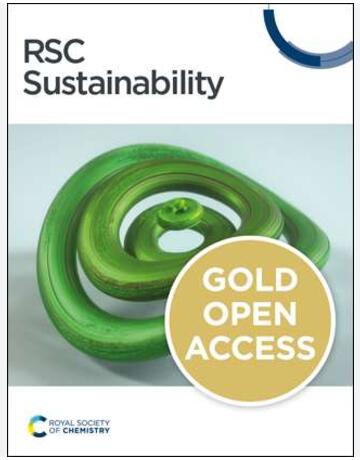Development of a Predictive Model Based on the Alignment Tool in the Early Stages of Projects: The Case of Saudi Arabia Infrastructure Projects
IF 3.3
3区 环境科学与生态学
Q2 ENVIRONMENTAL SCIENCES
引用次数: 0
Abstract
The construction industry plays a substantial role in shaping the economies of many countries. Construction management faces various challenges that can lead to project failures, particularly in infrastructure projects struggling to meet cost and time requirements. Inadequate project planning and the intricate nature of construction projects can cause participants’ project goals to not align. It is crucial to address these challenges early in the planning stages to ensure project success. This research involved investigating previous studies to understand current practices for improving infrastructure project planning and selecting the best pre-project planning tool. Infrastructure projects in the Saudi construction industry are used as a case study. A questionnaire was prepared based on essential alignment issues affecting team alignment during pre-project planning. Participants rated the level of agreement with alignment issues and the overall success of a project they worked on. The study utilized descriptive and inferential analysis techniques to assess infrastructure project success rates and develop a predictive model driven by the alignment tool. Multiple linear regression techniques were used during the model’s development, and validation and reliability outputs were obtained. By evaluating all relevant stakeholders, the model generates a score to facilitate the pre-project planning process, increasing the likelihood of project success. The study found that the model’s predictive accuracy was 94%. This research is significant in creating a predictive model applicable to infrastructure projects, enhancing project management practices by enabling project teams to evaluate project progress, identify projects in need of corrective action, and ultimately improve project performance, leading to cost and time savings.在项目早期阶段开发基于对齐工具的预测模型:沙特阿拉伯基础设施项目案例
建筑业在许多国家的经济发展中发挥着重要作用。建筑管理面临着可能导致项目失败的各种挑战,尤其是在努力满足成本和时间要求的基础设施项目中。项目规划不足和建筑项目错综复杂的性质会导致参与者的项目目标不一致。为确保项目成功,在规划阶段尽早应对这些挑战至关重要。本研究涉及对以往研究的调查,以了解当前改善基础设施项目规划和选择最佳项目前期规划工具的做法。沙特建筑业的基础设施项目被用作案例研究。根据影响项目前期规划期间团队协调的基本协调问题编制了一份调查问卷。参与者对他们所参与的项目的一致性问题和整体成功程度进行了评分。研究采用了描述性和推论性分析技术来评估基础设施项目的成功率,并开发了一个由协调工具驱动的预测模型。在模型开发过程中使用了多元线性回归技术,并获得了验证和可靠性输出。通过对所有相关利益方进行评估,该模型生成了一个分数,以促进项目前期规划过程,提高项目成功的可能性。研究发现,该模型的预测准确率为 94%。这项研究的重要意义在于创建了一个适用于基础设施项目的预测模型,使项目团队能够评估项目进度,识别需要采取纠正措施的项目,并最终提高项目绩效,从而节约成本和时间,加强项目管理实践。
本文章由计算机程序翻译,如有差异,请以英文原文为准。
求助全文
约1分钟内获得全文
求助全文
来源期刊

Sustainability
ENVIRONMENTAL SCIENCES-ENVIRONMENTAL SCIENCES
CiteScore
6.80
自引率
20.50%
发文量
14120
审稿时长
17.72 days
期刊介绍:
Sustainability (ISSN 2071-1050) is an international and cross-disciplinary scholarly, open access journal of environmental, cultural, economic and social sustainability of human beings, which provides an advanced forum for studies related to sustainability and sustainable development. It publishes reviews, regular research papers, communications and short notes, and there is no restriction on the length of the papers. Our aim is to encourage scientists to publish their experimental and theoretical research relating to natural sciences, social sciences and humanities in as much detail as possible in order to promote scientific predictions and impact assessments of global change and development. Full experimental and methodical details must be provided so that the results can be reproduced.
 求助内容:
求助内容: 应助结果提醒方式:
应助结果提醒方式:


